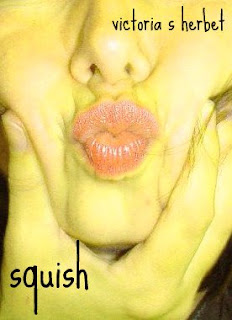Mark Day in The Australian wrote an article that said this:
TEENAGERS are not like us. They grunt rather than converse, slouch rather than walk, sleep till noon and their preferred dress is grunge—any black T-shirt featuring gross green slime dripping from a skull will do. They don’t read, don’t pay for music, don’t listen to adults and don’t care about Twitter.
Below is my response.
Hi Mark,
I run a website for teenagers about books and reading at the State Library of Victoria, and I wanted to bring a couple of things to your attention after reading your article in the Australian on Monday.
You're wrong when you say young people don't read. Really wrong. In Australia last year, six of the top ten bestsellers in ALL genres were young adult fiction titles. In the US, Borders is ditching their music/DVD sections and replacing them with sprawling teen sections to capitalise on the enormous boom in young adult fiction. Last year, booksales as a whole dropped 4.7%, but YA sales were up 13%. Our website gets thousands of visitors a day, young people desperate to talk about their favourite books. Young people respond creatively to the books they read, with fan fiction, art and music. They love literature so much that they want to spend more time with the characters they love.
The "fragmented, flipperty-gibbet" teens you disparage so flippantly are the most active generation in terms of volunteering, working for charity organisations, and engaging in issues like climate change and human rights. They are socially aware and active. Last year in the US thousands of teens and YA authors banded together in an online community called YA for Obama. The young people were frustrated that they couldn't vote in the US election, and were eager to find other ways that they could make a difference and affect social change. I attended an online chatroom in YA for Obama during one of the Presidential Debates, and found the room full of not just Americans, but British kids up past their bed time and Australians in the computer room at school on their lunch break. And let me tell you, these teenagers had a more comprehensive understanding of the complexity of the US political system than, I suspect, the vast majority of American voting adults. They knew about and cared about the issues. They had opinions, and were desperate to make a difference.
And sure, there's plenty of them who don't read newspapers. But for every teen you find me who doesn't read a newspaper, I'll find you fifty adults who don't either.
However, if you did want teenagers to start reading your newspaper, I'll offer you three suggestions.
1. Stop filling your pages with poorly-researched offensive comments about them.
2. Include content that is relevant to a teenage audience. Hey, you could even publish some content written by teenagers (The Guardian does this regularly with enormous success).
3. Start the newspaper reading habit early. Have a children's section of the paper. A REAL children's section, not a token half page with a Wordsearch puzzle. Address news stories that are relevant to kids and write them in a language they'll understand. You can find examples of this in Canada and the UK.
It's a shame that our society - and in particular our media - seem to be so obsessed with dragging new generations down. It would be awesome to see a little more encouragement of young people, and a little less small-minded snippery.
Regards,
Lili Wilkinson.


